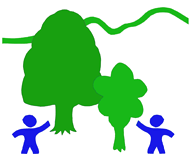DT
Our Vision
At Catcott Primary School, our vision is to inspire children to become confident designers and critical evaluators through encouraging resilience, thinking skills and high levels of independence. They will be curious learners; designing for a purpose and reflecting on their own work and the work of others. Children will learn how to overcome difficulties and rise to challenges. They will develop their knowledge and skills in cooking and nutrition, mechanical systems, structures and textiles. Key Stage 2 children will also develop their electrical and digital skills to improve their awareness of technology in the wider world.
Rationale
At Catcott, we focus on five key strands when learning Design and Technology. These are: Design, Make, Evaluate, Technical Knowledge and Cooking and Nutrition. We follow the National Curriculum guidance of the three stages of the design process: Design, Make and Evaluate.
Children learn creative and practical skills that are required to perform everyday tasks. They learn how to design and make high-quality prototypes and they develop an understanding of how to test, critique and evaluate their own ideas and the work of others. They also learn the principles of nutrition and how to cook.
Each DT topic allows children opportunities to be creative and work practically and to use questioning to prompt thinking skills and develop a deeper understanding. We will show children how products work in the real world when possible and help children to understand that DT skills are being used in many jobs around the world.
The topics that we teach help to develop children’s knowledge and understanding in the following areas:
- Cooking and Nutrition – where food comes from, maintaining a healthy balanced diet, preparing food safely and following instructions in recipes.
- Mechanisms/Mechanical Systems – observing and creating movements using cams, followers, levers and sliders.
- Structures – properties of materials and planning, building and evaluating structures.
- Textiles – fastening, sewing, decorative and functional fabric techniques.
- Electrical Systems – create electrical products using series circuits, circuit components and circuit diagrams and symbols (KS2 only)
- Digital World – program products and develop designs using 2D and 3D CAD software (KS2 only)
We implement a curriculum that is progressive throughout the whole school. Our curriculum aims to ensure progression and full coverage of the National Curriculum through carefully planned projects and learning opportunities that allow children to revisit and build upon prior knowledge.
We assess the children on a formative basis, allowing it to inform our planning and adapt lessons accordingly. We assess through children's responses within lessons and the outcomes of what they produce. We support children with additional needs by adapting tasks and learning outcomes.
